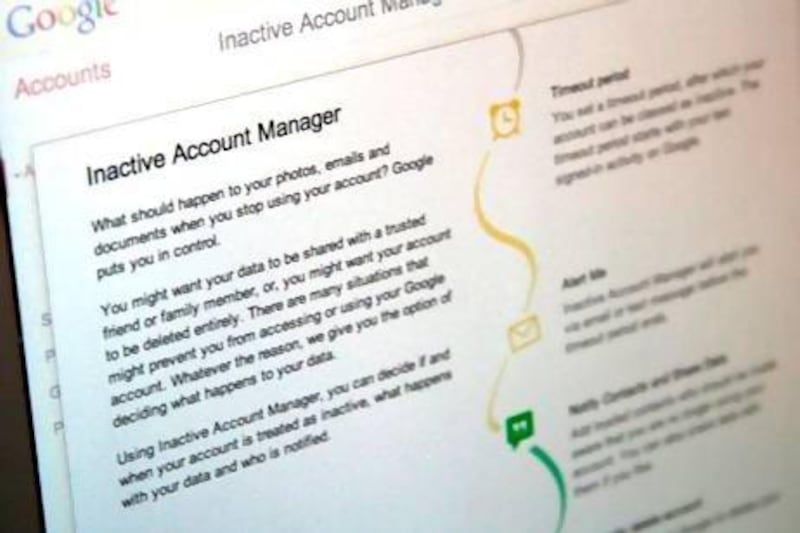Who owns the content that you post online? It's a question that most of us are familiar with now. Do we own our Facebook photos, or are they the property of Mark Zuckerberg and the Facebook shareholders? And if it's the latter, what should Zuckerberg be allowed to do with them?
But here's another question: after you're dead, who owns the content that you posted online when alive? Does ownership revert to the platform - Facebook, Twitter, Google - on which you shared? Should your family have the final say? But what if there are messages, or photos, you'd rather they didn't see? Perhaps your wishes should be the primary concern. But how would that work?
The subject is currently at the forefront of the global brain, thanks to Google. Last week, the search giant launched a product called Inactive Account Manager. You couldn't ask for a more innocuous name but it soon emerged that the tool is a product intended to enable users to control their "digital assets" after death. In short, it's a handle on the digital afterlife.
Users of Inactive Account Manager - "not a great name" concedes Google - can specify what happens to their data when their account becomes inactive. Users can request that all data - including email from Gmail accounts, videos in YouTube, pictures in Picasa, documents in Google Drive - be deleted after three, six or 12 months of inactivity. Or they can request that specified data be sent to certain people via email. Before taking this action, the service will text the account holder and send an email to a secondary email address (just in case you've been inactive because of, say, a long holiday, rather than death).
Reaction in the blogosphere has been positive. Here, most have agreed, is a useful means of sharing precious messages and photos with loved ones after death. Or keeping them away from content that could prove heartbreaking.
It's enough to make you ask: what will happen to my digital life when I finally log out for good?
Currently, other online giants aren't as prepared as Google. Facebook will allow relatives to memorialise a page after the death of a loved one, so they can post messages on it: a practice that has become commonplace. But the site won't disclose passwords - and so give access to Facebook messages and other content - unless forced to by a court order. Twitter will deactivate the account of a user who has died if relatives can provide proof of death.
Of course, at heart this is a story about how important our digital lives have become. Indeed, how indistinguishable that life has become from what we used to call our "real" or "offline" lives. The content we post online - pictures, emails, chat - is often the most intimate information that we ever create, so that for many of us our online lives have become a repository of our innermost selves, our dreams, our secrets, our loves, and all the rest.
Is most of it destined to be deleted when we die? A billion stories, the imprints of so many lives, lost forever? There is another solution. Let our data go, instead, into some giant digital time capsule. Then, 500 years from now future historians will pour over it while drawing up a picture of life in the early 21st century. And we'll all live - digitally, at least - forever.
David Mattin is lead strategist at trendwatching.com
Follow us
[ @LifeNationalUAE ]
Follow us on Facebook for discussions, entertainment, reviews, wellness and news.





